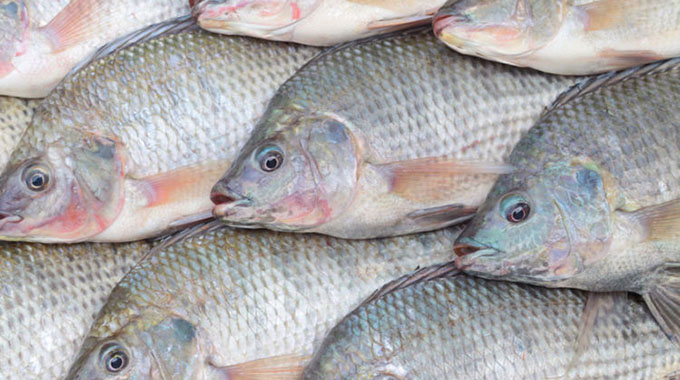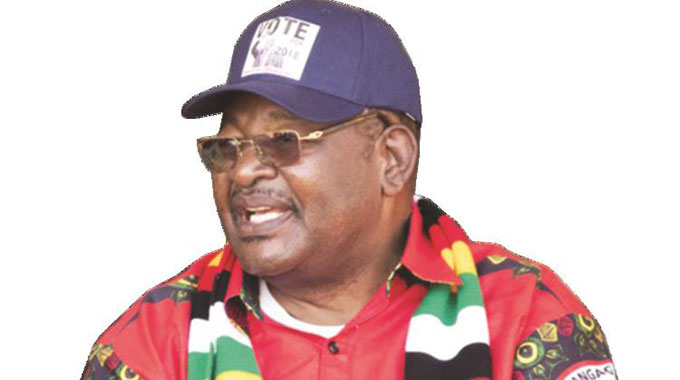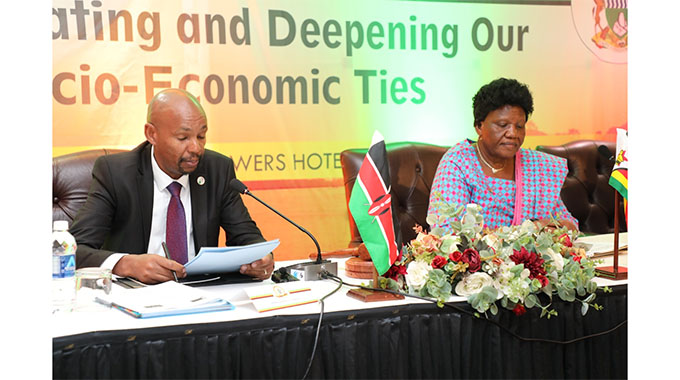Russia gifts 50 000t of grain to Zim

Innocent Madonko in ST PETERSBURG, Russia
RUSSIA will, in the next three months, supply 50 000 tonnes of grain, which includes wheat, barley and maize, to Zimbabwe free of charge in a humanitarian gesture meant to ease food shortages and cement the already strong bilateral ties between the two countries.
Addressing a plenary session of the Second Summit of the Russia-Africa Economic and Humanitarian Forum, which opened here yesterday, Russia President Vladimir Putin said the deal would also be extended to Burkina Faso, Mali, Central African Republic, Somalia and Eritrea.
Grain deliveries would be free of charge with Russia meeting the costs of transporting the cargo.
President Putin said Russia was expecting a record bumper harvest this year and was in a position to replace exports of grain to Africa by Ukraine following the collapse last week of a grain deal between the two countries which allowed safe passage of grain exports by Kiev through the Black Sea.
He said Russia pulled out of the grain deal because none of the promises it was given about facilitating its own grain and fertiliser exports had been met.
Despite Western sanctions which made it hard for Russia to export its grain and fertilisers, the Russian leader said Moscow would go the extra mile to ensure that food is delivered to those in need in Africa.
“In the next three/four months, we will be ready to provide to Burkina Faso, Zimbabwe, Mali, Somalia, the Central African Republic, and Eritrea 25-50 000 tonnes of grain to each. We will ensure free shipping of this cargo,” said President Putin to applause from delegates.
The Second Russia-Africa Summit has drawn 17 Heads of State, including President Mnangagwa, with 49 of the continent’s 54 States represented.
Zimbabwe is food secure, having recorded bumper wheat and maize harvests last season, but will certainly welcome any additional grain into its silos to augment the country’s strategic reserves.
Russia and Zimbabwe enjoy strong ties dating back to the days of the liberation struggle.
Those relations have been strengthened over the years and co-operation encompasses fields such as agriculture, mining, health and other sectors.
In his speech to the plenary, President Putin spoke of the deepening co-operation between Russia and the continent, impediments to the relationship wrought by Western meddling, economic prospects for African countries, and the need for a multi-polar world free of the domineering influence of the United States of America.
He dwelt at length on the grain deal, explaining why it collapsed and the need for Africa not to panic as Russia would ensure the continent is food secure.
President Putin said more than 70 percent of Ukrainian grain exported under the collapsed deal had gone to high income countries including the European Union and poor countries, particularly those in Africa, had been “screwed over” and received less than three percent of the shipments.
He said it was ironic that while Western countries had imposed sanctions on Russia, making it virtually impossible for it to supply free fertilisers to countries in need in Africa, they still blamed Moscow for the humanitarian catastrophe unfolding in some parts of the developing world.
Trade in agricultural goods between Russia and Africa grew by 10 percent last year, amounting to US$6,7 billion. Between January and June this year, it grew by another 16 percent.
Russia exported 11,5 million tonnes of grain to Africa in 2022. Over the past six months of this year, it exported almost 10 million tonnes.
President Putin said this was possible despite debilitating sanctions militating against Russian exports.
“Sanctions impede exports of food by Russia by making transport logistics, insurance and banking payments harder,” he said.
“The situation is paradoxical. On the one hand, Western countries get in the way of our grain and fertiliser supplies, on the other hand, let me say this directly, they hypocritically accuse us of the current crisis situation in the global food market.
“This approach is especially visible during the implementation of the so-called grain deal that was concluded with the participation of the UN secretariat. Initially, it was aimed at ensuring global food security, decreasing threats of famine and providing assistance to the poorest countries including countries in Africa.
“However, over almost a year of the so-called deal, more than 32,8 million tonnes of cargo was exported from Ukraine of which 70 percent, dear friends, was supplied to high end, upper middle income countries including first and foremost, the European Union whereas such countries as Ethiopia, Sudan, Somalia and a number of other countries accounted for less than three percent of the overall volume, less than one million tonnes.”
President Putin said Russia opted to participate in the grain deal on the understanding that illegitimate impediments (sanctions) would be lifted for the supply of its grain and fertilisers to the global market.
“Let me state that this is what the assistance to poor countries is about,” he said. “But actually it didn’t happen. None of the conditions of the deal that had to do with lifting sanctions for Russian exports of grain and fertiliser to global markets has been implemented. None of them was implemented.
“Obstacles were made for us, and by the way we have just met with the AU leadership and we talked about that. Impediments were placed for us to provide free of charge, fertilisers to poor countries.
“Out of 262 000 tonnes of fertilisers that were shipped through European ports, we managed to send only two batches – 20 000 tonnes to Malawi and 34 000 tonnes to Kenya.
“All the rest remained in the EU and that has happened despite the fact that we are talking about a purely humanitarian campaign that should not be subject to any sanctions whatsoever. Well, somebody thinks that they do not want Russia to enrich itself, to invest this money for military means. But this is about free supplies to the poorest countries.
“I have said that our country is ready to make up for the Ukrainian grain both on a commercial basis and free of charge to those countries in Africa that are in dire need especially since we expect a record high harvest this year.”
President Putin said over the past agricultural year, Ukraine had produced 55 million tonnes of grain and exports amounted to 47 million tonnes.
As for Russia, he said, they harvested 156 million tonnes of grain and exported 60 million tonnes of which 48 million tonnes was wheat. The share of the Russia global wheat market is 20 percent with Ukraine accounting for less than 5 percent.
“This means that it is Russia that is making a significant contribution to global food security,” said President Putin. “It is big and responsible for international supply of agricultural goods. Those who claim that, that is not the case, that are calling for the resumption of the so called grain deal of Ukraine, they are simply twisting the facts.
“They are telling lies. Basically, over the past decades or even centuries, this has been the habit of Western countries. Our country will further support the countries in need and the regions in need. We are actively participating in shaping a more just system of resource distribution.
“We spare no effort to prevent a global food crisis. In principle, we believe that if Africa duly organises agricultural production, it will in future, not only feed itself and independently ensure its food security, but can also become a net exporter of various types of food. For its part, Russia will not only support that but make sure it happens.”











Comments